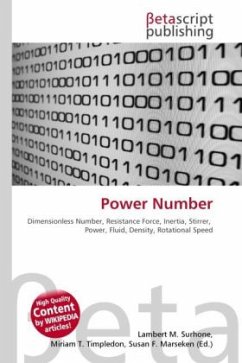Please note that the content of this book primarily consists of articles available from Wikipedia or other free sources online. HIn physics, a topological quantum number (also called topological charge) is any quantity, in a physical theory, that takes on only one of a discrete set of values, due to topological considerations. Most commonly, topological quantum numbers are topological invariants associated with topological defects or soliton-type solutions of some set of differential equations modeling a physical system, as the solitons themselves owe their stability to topological considerations. The specific "topological considerations" are usually due to the appearance of the fundamental group or a higher-dimensional homotopy group in the description of the problem, quite often because the boundary, on which the boundary conditions are specified, has a non-trivial homotopy group that is preserved by the differential equations. The topological quantum number of a solution is sometimes called the winding number of the solution, or, more precisely, it is the degree of a continuous mapping.
Bitte wählen Sie Ihr Anliegen aus.
Rechnungen
Retourenschein anfordern
Bestellstatus
Storno








